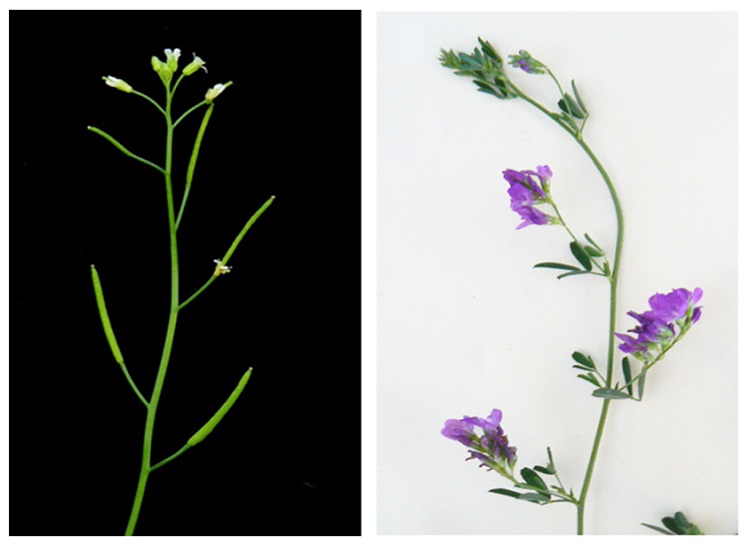PS Seminar: Genetic network regulating the development of the compound inflorescence of legumes
Speakers
Event series
Content navigation
Description

The genetic control of inflorescence architecture is a key aspect for plant developmental biology, for biotechnology and for breeding strategies, being directly related to crop yield and yield stability, both characters of great economic importance. Inflorescence architecture depends on two characters: 1) the position where floral meristems are initiated and 2) the activity of the inflorescence meristems. While Arabidopsis has a simple inflorescence, where flowers are directly formed in the primary inflorescence stem, most legumes possess a typical compound inflorescence, where flowers are not formed in the primary stem, but in lateral secondary inflorescences (I2). Our main objective is to elucidate the genetic networks controlling inflorescence architecture and to understand how changes in these networks contribute to generate diversity of plant forms. One of our research lines study the development of the legume compound inflorescence. Our results have allowed us to identify novel meristem identity regulators and to propose a genetic model that explains how meristems of the legume inflorescence are specified. However, very little is known about the genetic control of the activity of the legume inflorescence meristems and how the number of flowers per inflorescence is determined. We have recently initiated a study to identify and characterize a gene that controls the number of flowers per I2 in chickpea. In the seminar, I will present and discuss our latest results on how the identity and activity of the meristems of the legume inflorescence are controlled.
Francisco Madueño leads the Inflorescence Architecture lab at the Instituto de Biología Molecular and Celular de Plantas (IBMCP) in Valencia, Spain. He obtained a PhD in Biological Sciences working on nitrogen assimilation in cyanobacteria under Migel G Gerrero supervision's, in 1987, at the Dpt of Biochemistry of Seville University (Spain). Then he did three years postdoctoral work with John C Gray at the Botany School of Cambridge University (UK), where he worked on import of proteins to chloroplast, and three additional years with José M Martinez-Zapater at the INIA (Madrid, Spain), working on the genetic control of flowering time in Arabidopsis, before he got his current position. The main aims of his research are to elucidate the developmental networks controlling plant and inflorescence architecture and to understand how changes in these networks contribute to generate diversity of plant forms; for this purpose he uses Arabidopsis and legumes (mainly pea and Medicago) as model systems.
Location
Eucalyptus Seminar Room, S205, Level 2, RN Robertson Building (46)

